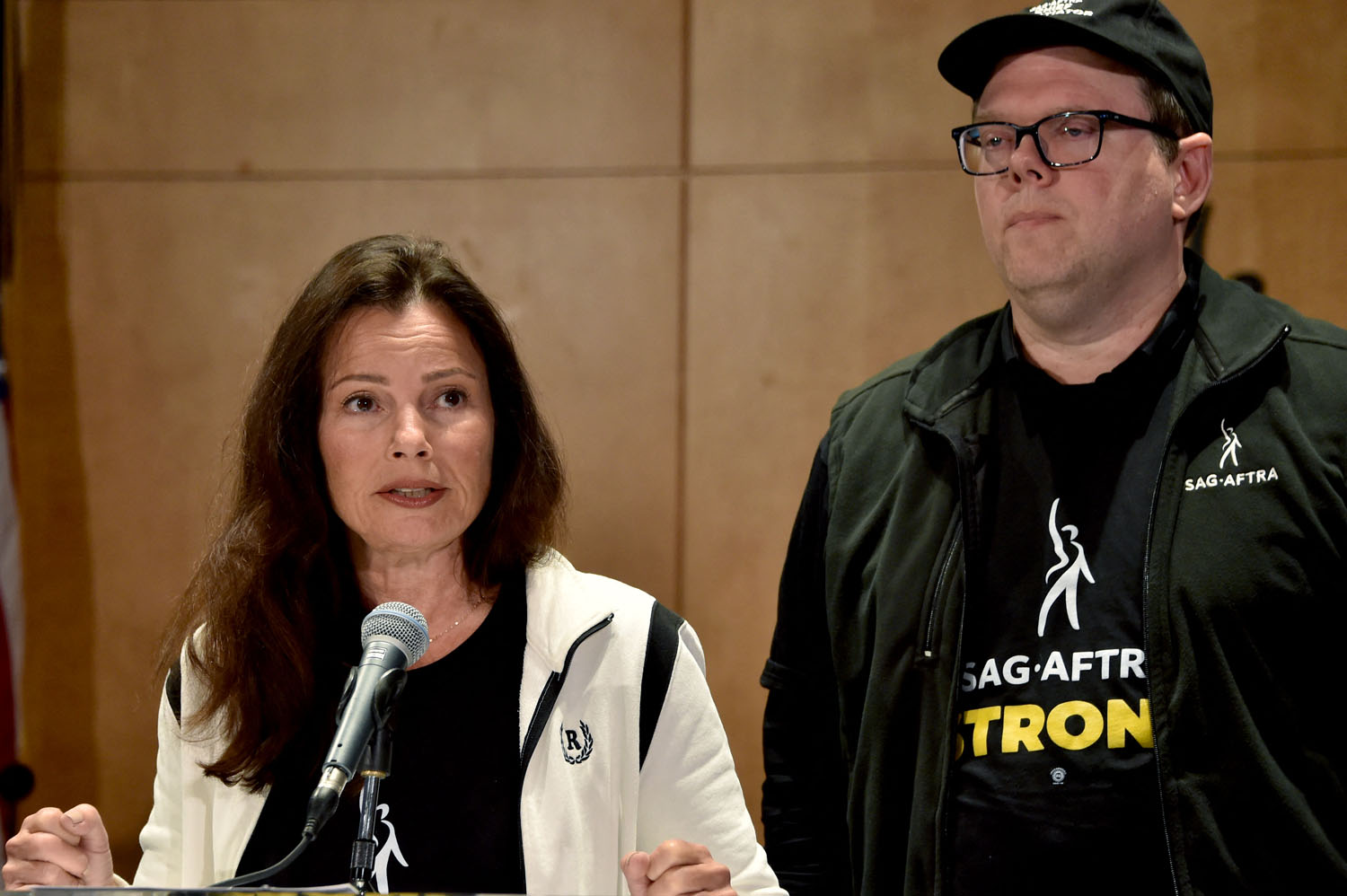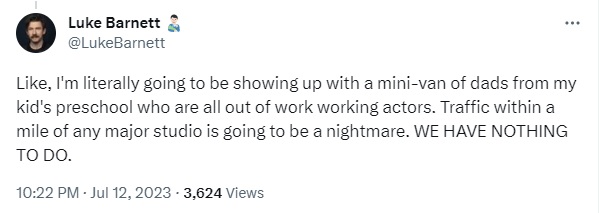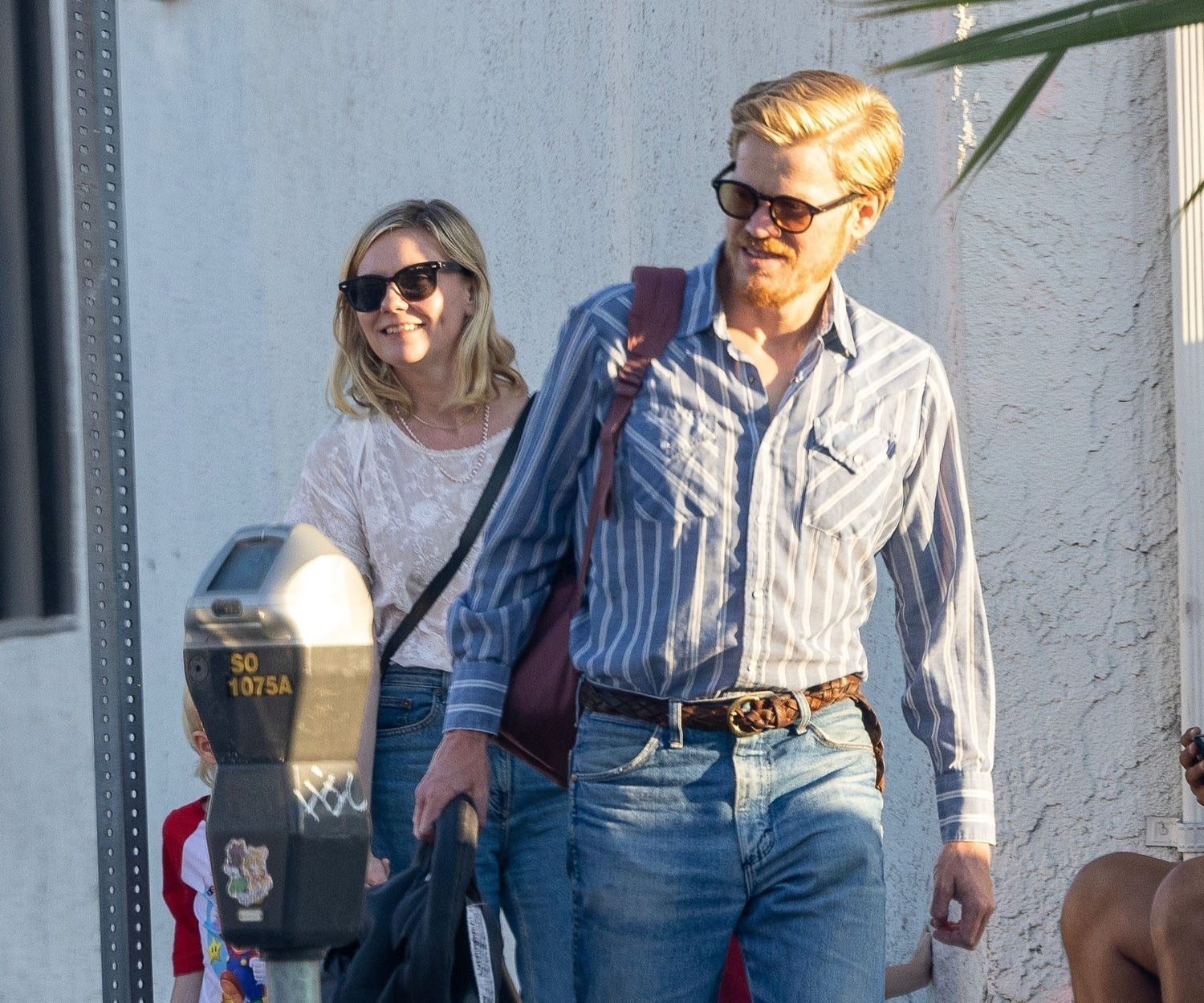It’s a double strike



Seventy-two days after the writers’ strike began, the actors are on strike, too. It’s the first time in fifty-three years both guilds have been on strike at the same time. We’ve been watching the increasingly frantic pace of the Barbie and Oppenheimer press tours over the last couple weeks—when a deadline extension allowed negotiations and publicity activities to continue—but now it’s not just “pencils down”, as the writers say. Now it’s everything down. Full stop.
As long as studios have completed projects in the can, movies and new TV episodes will continue to premiere—although Netflix execs should rethink bragging about how they can “wait out” a strike for at least year, that’s not a good look—but the first impact of the SAG strike, specifically, will be the cessation of publicity. Press tours and red carpets will stop completely. Hall H at Comic Con and the fall film festivals will be ghost towns without celebrities to populate them (Comic Con is already bracing for a vastly different experience this year). And then, over time, as the production delays set in, it will be like the pandemic, with less and less new movies premiering, and television relying increasingly on unscripted series.
But what is the effect of a DOUBLE strike? How do the actors and writers benefit each other on the picket line? Well, collective bargaining favors labor, not management. So, there’s that. And the concerns of both guilds—and the directors, who already have a deal to ratify—are the same: gutted residuals thanks to streaming, and AI encroachment reducing job opportunities are the big ones.
(And if you think other industries aren’t watching what happens with AI in the entertainment industry, don’t fool yourself. This is the canary in the coal mine for computers absolutely devastating human industry across the board. Which would be fine if society suddenly got super cool with universal basic income, but society is not super cool with UBI, which means we’re all going to need jobs that pay a living wage for the foreseeable future.)
With both guilds on strike, there is now an unprecedented opportunity to swing the pendulum of industry to favor workers, not management. Specifically, not the management that has taken a wrecking ball to a 100-year-old industry over the last decade, decimating what was once a healthy economic system that benefitted everyone. Was Hollywood totally fair? No, of course not. Discrimination exists, there was and is plenty of toxicity to go around. But the economic model of Hollywood WORKED. You could come to Los Angeles with stars in your eyes, and if you were very lucky, you might hit the big time and become a super famous, super rich star.
But most people just became regular workers in the industry, which supported a large, healthy middle class. That started to whittle away twenty years ago, as the first ripples of digital distribution began to disrupt the economic model that embraced multiple revenue streams from theatrical distribution to home video to premium cable to syndicated broadcast, all of which put money in people’s pockets. I remember speaking to a character actor once—a That Guy Tom Cruise called when he wanted a “real actor, not a Hollywood actor” to “class up” his latest movie—who was lamenting that he was taking on more and more work, for less and less pay. The bottom was falling out of the home video market at the time, and no one had yet figured out how to replace that revenue.
In truth, no one ever did figure it out. Streaming never made money, not in the real sense, not in the sense that streaming can support the whole industry the way the combination of theatrical and home video distribution did. (This article about Orange is the New Black in The New Yorker is an excellent breakdown of how streaming success benefitted no one but the bosses.) Sure, Netflix is a valuable company, according to Wall Street, and entertainment/media CEOs make a lot of money—Bob Iger just got a contract extension and a $5 million annual raise on his already $27 million annual compensation, sit with those numbers and seethe as the writers, and now actors, beg just to make enough to afford a one-bedroom apartment. But that middle class character actor? A thing of the past. (That specific person has since passed away, but his widow had to sell their family home because his residuals dried up almost entirely and she could no longer afford to stay in LA. Their house was not a mansion.)
This is what is really on the line—the ability to make a decent living in Hollywood. Once again, no one is asking to get rich. Sometimes people do, yes, but the vast majority of the membership of SAG and the WGA are people you have never heard of, most of them are, in fact, already out of work.

The double strike is not about rich people getting richer. It is about creating—or rather, RECREATING—a healthy industry where residuals sustain people through the inevitable dry spells, because frankly, most people DON’T expect to get rich. They expect to bag one job out of a hundred, and they would like a residual structure that can stave off homelessness while they try for that next job, and the next, and so on. That’s what residuals are for, after all. It was always understood people needed a way to support themselves between jobs, because Hollywood is not your normal 9 to 5.
But the Alliance of Motion Picture and Television Producers (AMPTP) is not interested in getting (back) to that place where the industry works for everyone. In an absolutely clown sh-t move earlier this week, “unnamed sources” from and/or connected to AMPTP gave Deadline a bunch of horrifying soundbites about an intention to “starve out” the writers, to refuse to get back to negotiations so long they “start losing their apartments and losing their houses”. An unnamed studio exec stated an intention to “break the WGA”.
A spokesperson for AMPTP disavowed these statements, but Deadline doesn’t make this sh-t up and they don’t run stories like that unless they know who, exactly, those “unnamed sources” are. Studio execs, members of AMPTP, they said all that. They meant it. They’re not here to negotiate in good faith and work toward a solution where everyone gets their piece of the pie. They want the whole pie. They want the pie shop. They want the farms that produce the wheat that makes the flour. What they forgot is that writers and, honestly, most actors, have already adjusted to living without pie.

This is not going to be pretty. It’s not going to be fun, however peppy picketers may seem, no one LIKES this. But it’s necessary. It’s necessary for the entertainment industry to be a place where people can make a living, and it’s necessary, especially regarding AI, to set precedents that can help other industries in their own labor negotiations in the coming years. We’re in for a massive, unprecedented labor upheaval over the next years and decades. The Hollywood double strike is just one, highly publicized piece of the puzzle, but fast food workers are striking in California, too, and we’ve already seen a spike in pro-union and pro-worker movements since 2020. But we’re also seeing the inevitable management pushback, of which AMPTP is one part.
There has been and will continue to be a lot of pro-management drivel in the press, painting the strikers—especially writers, who are largely unknown to the general public, and thus more vulnerable since they don’t have glamour and celebrity to shield them—as the petty, unreasonable ones, the ones causing all this disruption, all these delays, “ruining” events like Comic Con and the fall film festivals. If only they would accept their cold bowls of gruel and go live in their tent cities, we could get back to work.
But AMPTP has failed. That organization exists solely to negotiate these labor contracts, and they have only managed to complete one out of three negotiations in the last three months. The strike is happening because management doesn’t want to pay workers a living wage. The writers and actors are just asking to make a living, and AMPTP said “no”. Coming across like Snidely Whiplash tying people who just want to pay their bills off the back of their honest labor to the train tracks isn’t a good look, but then, AMPTP has never been good at image management. Back during the 2007-08 writers’ strike, David Letterman told us who AMPTP are:
During the WGA Strike of '07/'08, David Letterman did a bit on the AMPTP. As relevant now as it was then. pic.twitter.com/1GZgc4BQ7q
— Todd Spence (@Todd_Spence) July 11, 2023
After months of hearing about how dreadful it is that writers want to be paid, to be able to support themselves after making all these studios and streaming companies billions of dollars, now we’ll get to hear about how awful actors are for wanting fair wages, too. Imagine being on a hit TV show and wanting to quit your bartending job as a result! How uncouth, artists are supposed to want to starve!
Do not fall for the propaganda, AMPTP could end this tomorrow by agreeing to a residual structure that echoes the system that worked in the past, and by even halfway agreeing to slow down on AI so that everyone can figure out how to utilize new technology without erasing human jobs. But they refuse to do any of that, they don’t WANT this industry to support its workers. They just want to keep hoovering up all the cash without question, they want to turn screenwriting into Uber and acting into Doordash. The end goal is for Hollywood to become a strict gig economy where labor is reduced to on-demand services for pennies, yet the corporations and the men who run them get ever richer as everyone else starves around them.
Cowards, cutthroats, and weasels, indeed.

